For me, it's more helpful to have executable code to go through the process, so I'm going to put some in. This is addressing your concern,
I suspect it is something with how/where I installed the compilers...
because the installation from apt-cyg should be helpful in letting the system know where to look for the compilers. I'm also addressing a possible linkage issue.
bballdave025@MY-MACHINE /cygdrive/c/bballdave025
$ apt-cyg install gcc-fortran libgfortran5
If you don't have apt-cyg yet, follow these instructions from another answer.
# Get to where your setup executable lives.
# This is what you used to install Cygwin the first time.
# Note that mine is for the 64-bit version, and that
# I keep mine in C:\cygwin64. Your path might be
# different. You also might need to re-download
# The setup executable from Cygwin.
$ cd /path/to/setup_install/setup_x86-64.exe -q -P wget
$ wget https://raw.githubusercontent.com/transcode-open/apt-cyg/master/apt-cyg
$ chmod +x apt-cyg
$ mv apt-cyg /usr/local/bin
The libgfortran5 (or a more recent version, if available when you search) might be necessary. Here's why I think this might be the case.
bballdave025@MY-MACHINE /cygdrive/c/bballdave025
$ man gcc | grep -A 3 "[ ]*[-]l[ ]\{0,2\}library$"
-llibrary
-l library
Search the library named library when linking. (The second
alternative with the library as a separate argument is only for
POSIX compliance and is not recommended.)
(Note that I haven't included some parts of the result that aren't useful and can be fixed by prefixing the command with MANWIDTH=160, cf here.)
There is a little more detail and a little different result from the answer to a question about the lib prefix on files:
You can name a library whatever you want, but if you want gcc's -l flag to find the right one, you need to name it the way that link describes. For example, gcc -o myapp myapp.c -lm, [w]ill compile myapp.c, link the resulting object with libm.a, and output an executable called myapp. These days, there might be a more complicated search path involving dynamic library names, etc., but you should get the basic idea from this example. [In addition, you can look at this section f]rom the gcc man page:
-l library ...
... surrounds library with lib and .a and searches several directories.
The basic reason for all of that info is this: it is very possible that, in order to link with the gfortran library, you need to have installed a package named something like libgfortran. I don't know for sure how this works, especially with the Cygwin man page being slightly different, but it's worth a try. The likely extra thing you would need in this case is something like
apt-cyg install libgfortran
or
apt-cyg install libgfortran5
Here's some helpful info on how I found what to install. When I had a similar problem, I went to the Cygwin package search, but I only got three entries with three versions of netcdf-fortran

(archived). I wanted gfortran, so I kept looking
I found a great gfortran answer in this SO answer. With that answer, I went back to the Complete Cygwin Package List, armed with my trusty Ctrl + F, since I knew there were packages different from what came back from the search. The complete list had
cygwin64-gcc-fortran GCC for Cygwin 64bit toolchain (Fortran)`
gcc-fortran GNU Compiler Collection (Fortran)
and entries for libgfortran.
Hopefully some of this information will be helpful, or at least educational.
